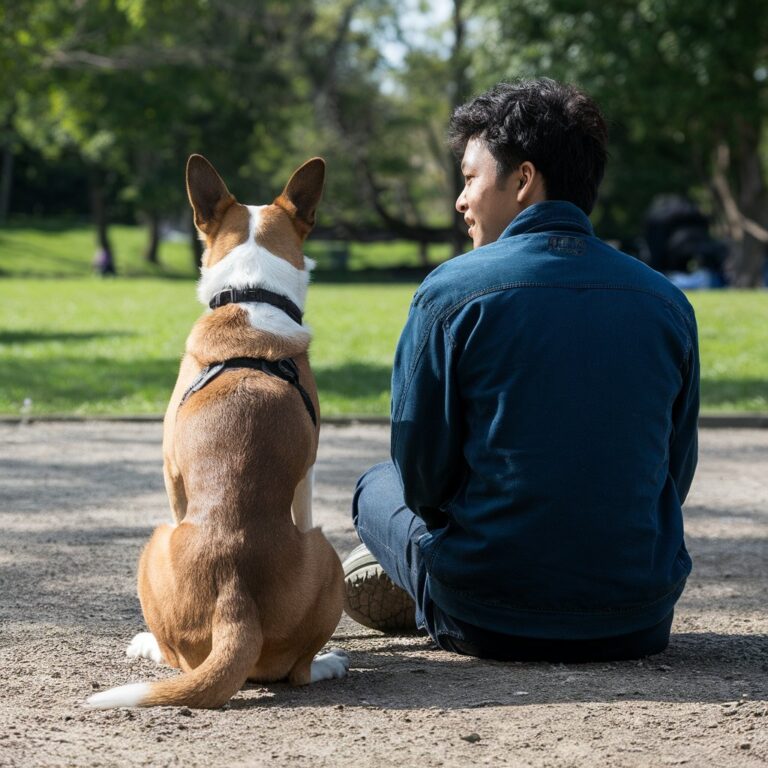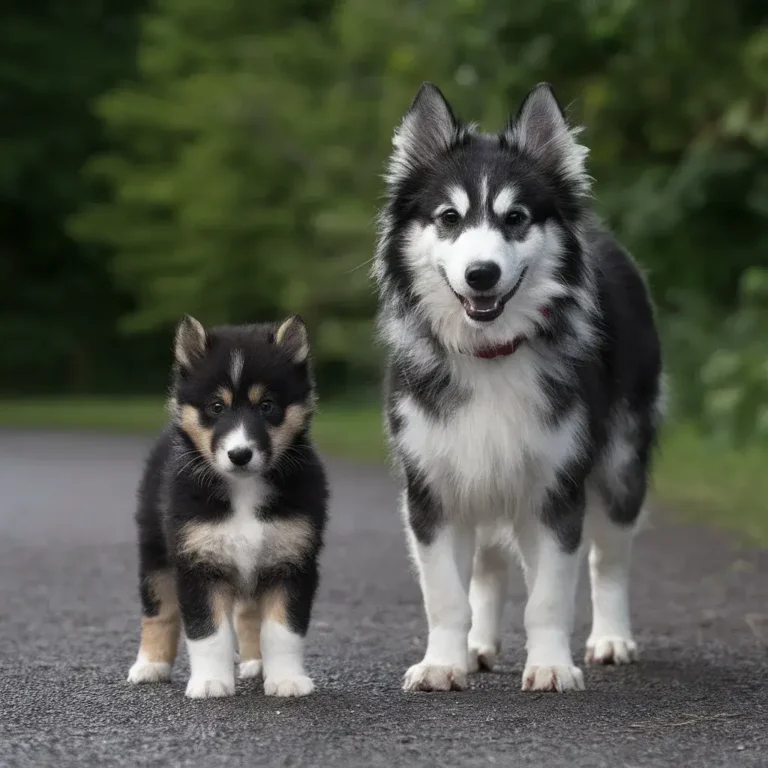Are Corgis Good With Kids

Corgis can make wonderful companions for kids, especially those over 8. Training your corgi is crucial for a positive bond with children. Socialize them well with different situations and enroll in puppy classes for social skills. Supervision is key to prevent mishaps, and reinforce gentle playtime rules. Teach children how to interact calmly and set clear boundaries. Want to ensure a successful relationship between your corgi and your kids? Remember the importance of age considerations, training, socialization, supervision, and interaction dos and don’ts.
Key Takeaways
- Corgis are generally good with children over 8 years old due to their herding instincts.
- Early exposure and training help acclimate corgis to kids.
- Supervision is crucial to prevent incidents; never leave young children alone with corgis.
- Positive socialization, routines, and boundaries promote a positive corgi-child relationship.
- Teaching children to interact gently and understand corgi behavior is essential for a harmonious bond.
Age Considerations
Consider the age of your children when deciding whether a corgi is a suitable pet for your family. Early exposure to a corgi can help acclimate both the dog and the child to each other’s presence. However, handling fears is crucial, especially for younger children who may be intimidated by the corgi’s herding instincts, which might manifest as nipping behavior.
Child behavior plays a vital role in the interaction with a corgi. Kids who understand boundaries and can follow instructions are more likely to have a positive relationship with the dog. When it comes to breed compatibility, corgis are generally better suited for families with children over 8 years old due to their herding tendencies.
Establishing playtime boundaries is essential to ensure that both the corgi and the child engage in safe and enjoyable interactions. Remember, supervision is key, regardless of the child’s age, to prevent any potential issues.
Importance of Training
Training your corgi is essential for fostering a positive relationship with children in your family. Behavior management is crucial when it comes to ensuring a safe environment for both your corgi and your kids.
Utilizing positive reinforcement techniques can help reinforce good behaviors and discourage unwanted ones. Consistent routines provide structure for your corgi, helping them understand boundaries and expectations within the household.
When it comes to playtime boundaries, establishing rules for interaction between your corgi and children can prevent any accidental rough play or nipping incidents. Communication cues play a key role in training your corgi to understand when to engage with children and when to take a step back.
Socialization Tips
To help your corgi interact positively with kids, focus on socializing them to various situations and people. Puppy playdates are a great way to introduce your corgi to other dogs and children in a controlled environment. Positive reinforcement is key during these interactions, rewarding good behavior with treats or praise. Consider enrolling your corgi in puppy classes to help them learn essential social skills and manners. Socialization outings to parks or pet-friendly events can expose your corgi to different environments and people.
Before playdates, ensure proper playdate preparation by setting up a safe space with toys and water for both the corgi and the children. During these interactions, monitor your corgi’s body language and behavior closely. Encourage gentle play and intervene if play becomes too rough.
Supervision Guidelines
Proper supervision is essential when children interact with corgis to prevent any potential incidents. When it comes to playtime rules, ensure that children are engaging with the corgi in a calm and gentle manner. Teach kids how to pet the dog softly and avoid sudden movements that may startle the corgi.
Safety precautions should be taken seriously, such as never leaving a young child alone with a corgi and always being present during interactions. Setting boundaries is crucial; establish areas where the corgi can retreat to if they need space and teach children to respect the dog’s boundaries.
Positive reinforcement is key when the corgi behaves well around kids. Praise good behavior with treats or affection to encourage a positive relationship. Lastly, preventing accidents is a priority. Be vigilant for any signs of discomfort or aggression in the corgi and intervene immediately to avoid any potential issues.
Interaction Dos and Don’ts
When interacting with a corgi, it’s important to establish clear guidelines to ensure a safe and positive experience for both the dog and the children involved.
Here are some dos and don’ts to keep in mind:
- Playtime boundaries: Encourage structured play sessions to avoid overexcitement and prevent any rough play that could lead to accidents.
- Proper handling: Teach children how to pet the corgi gently and appropriately, avoiding any rough handling that may cause the dog distress.
- Gentle interactions: Emphasize the importance of speaking softly and moving calmly around the corgi to create a peaceful environment for both the dog and the children.
- Educating kids: Educate children on corgi behavior, body language, and signals to help them understand when the dog needs space or is feeling uncomfortable.
- Setting rules: Establish clear rules for interaction, such as no pulling on the corgi’s fur or ears, no disturbing the dog while eating or sleeping, and always asking permission before approaching the dog.
Frequently Asked Questions
Are Corgis Good With Other Pets in the Household?
When it comes to other pets in the household, corgis can get along with cats, rabbits, and birds with proper introductions and supervision. However, their herding instinct may cause issues with smaller pets like hamsters and fish.
How Much Exercise Do Corgis Need When Living With Kids?
When living with kids, corgis need outdoor play, indoor games, family walks, fun activities, and energetic playtime. Providing a mix of physical and mental stimulation is essential for keeping your corgi happy and healthy.
Do Corgis Have Any Specific Health Concerns Around Children?
When considering corgis around kids, it’s essential to understand potential health concerns like allergies in children and the importance of corgi temperament, child safety, training, and health precautions. Supervision and training are key.
Can Corgis Be Left Alone With Kids Unsupervised?
Child supervision is crucial. Prioritize behavioral training to set playtime boundaries. Dog-proof your home and ensure proper introductions. Never leave corgis alone with kids unsupervised. With these precautions, corgis can be great companions for children.
Are There Certain Activities Corgis Enjoy Doing With Kids?
When it comes to activities corgis enjoy doing with kids, outdoor adventures, creative play, interactive training, educational games, and team sports are all great options. These activities can help strengthen the bond between your corgi and your children.
Conclusion
In conclusion, while corgis can make wonderful family pets, it’s important to consider the age of your children and the need for proper training and socialization.
By teaching your corgi obedience commands, promoting gentle interactions, and providing constant supervision, you can help ensure a positive relationship between your corgi and kids.
With the right approach, corgis can be great companions for families with children.






